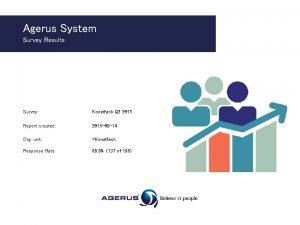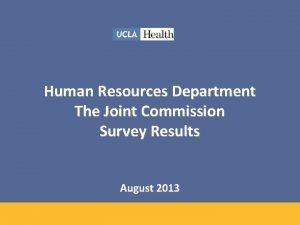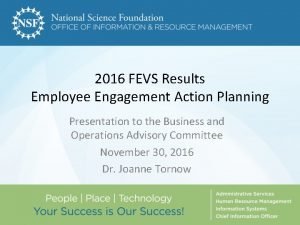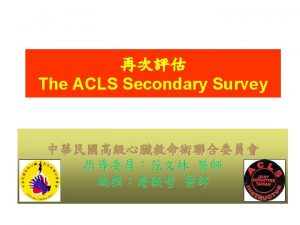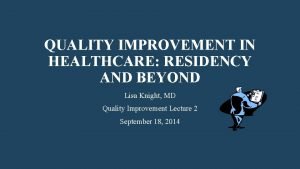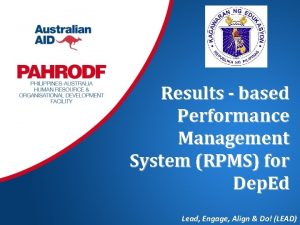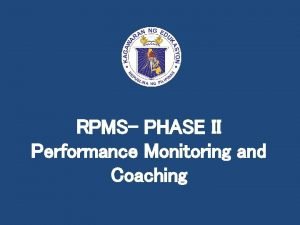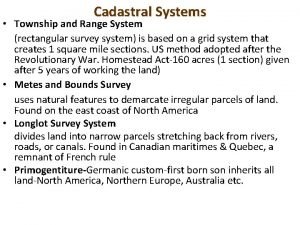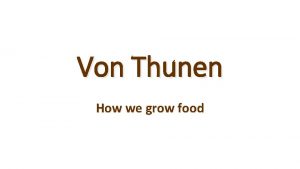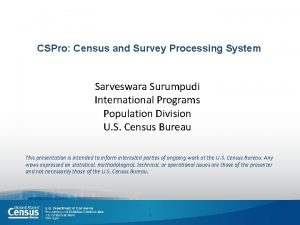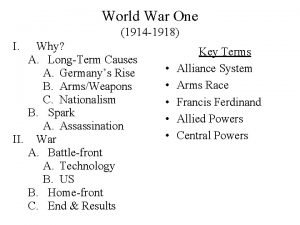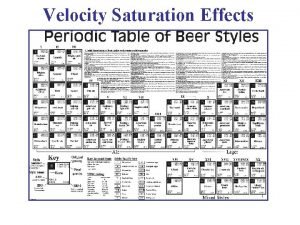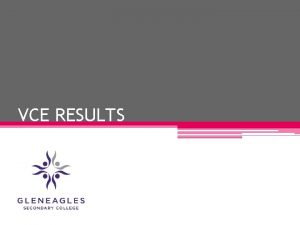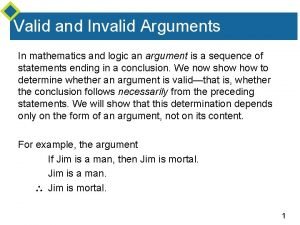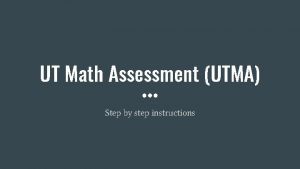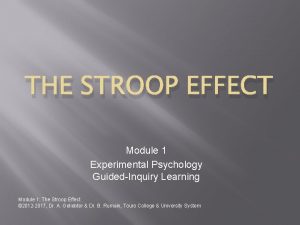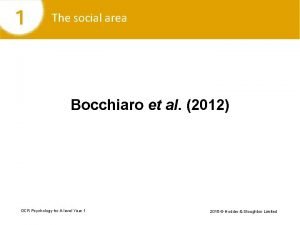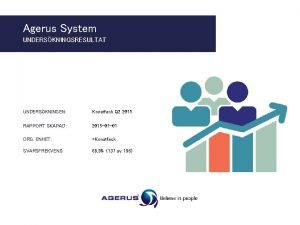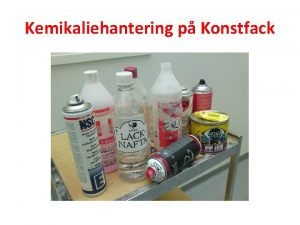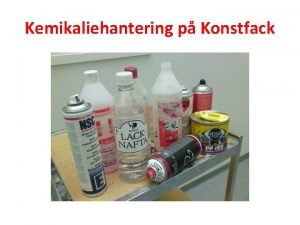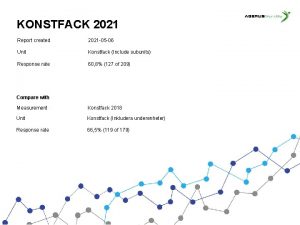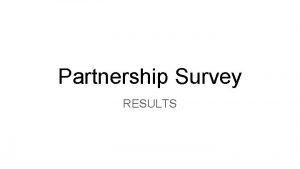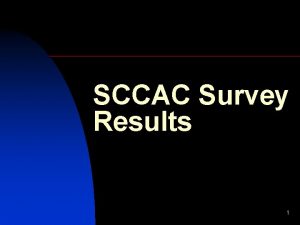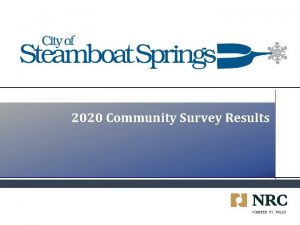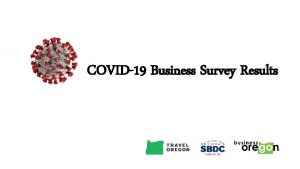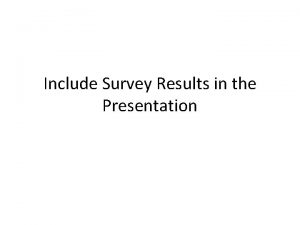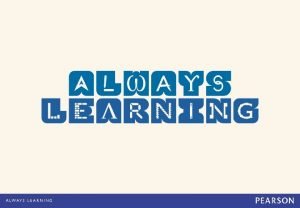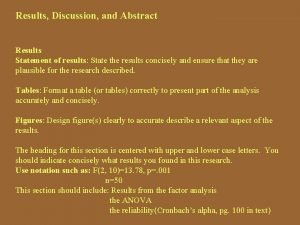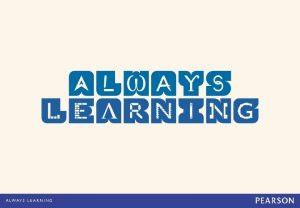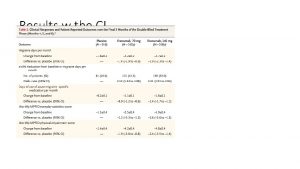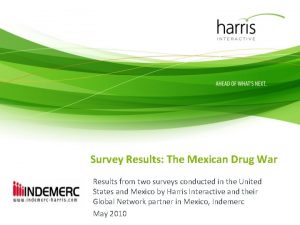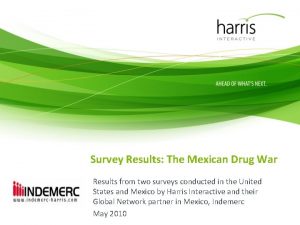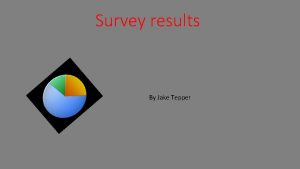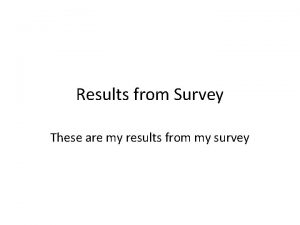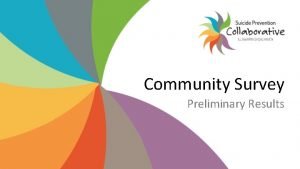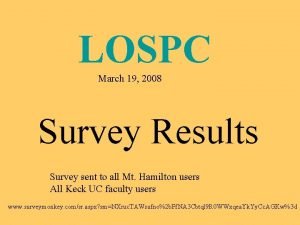Agerus System Survey Results Survey Konstfack Q 2





























- Slides: 29

Agerus System Survey Results Survey: Konstfack Q 2 2015 Report created: 2015 -08 -14 Org. unit: +Konstfack Response Rate 69. 9% (137 of 196)

INSTRUCTIONS THE GROUP’S DEVELOPMENT PROCESS Here are your group’s survey results that will allow you to interpret the results and discuss activities to improve the work situation. 1. Have a collaborative dialogue about the survey results Discuss each area and the results to help form your conclusions. Make certain that each group member participate in the discussion. 2. Summarise Note what positive and negative factors are impacting the group’s work situation. Discuss how positive factors can be sustained and further developed and how negative factors should be handled. 3. Commit to improvement activities Mutually decide a few, key improvement activities. If necessary, coordinate your efforts with other groups and get support from management. Start with a couple of activities and plan to complete them within a reasonable timeframe. 4. Set a time for the next meeting Keep the process active by setting a time for the next meeting to follow up on decided upon activities. Once the initial activities have been completed the group can review the next set to execute. Good luck! AGERUS 2

SUMMARY Summary is only shown when excluding sub units. 3

Our assignment and our goals Overview Our Assignment Our Goals Vi ska erbjuda särskilt lovande och motiverade studenter och forskare inom konst, design, konsthantverk och bildpedagogik, en internationell och multidisciplinär utbildnings- och forskningsmiljö. Våra utbildningar ska erbjuda ett brett utbud av konstnärliga gestaltningsmetoder samt kritisk dialog. This unit has no goals associated with this survey. 4

Our requirements Overview 5

SUMMARY API AND PERFORMANCE PROFILE AGERUS PERFORMANCE INDEX, API PERFORMANCE PROFILE API-score 77, 0 (max 100) For prerequisites for performance to be present, all conditions must be above 50, regardless of the API score. API shows to what extent the five conditions for performance are fulfilled. API is used to easily follow the unit’s development over time. An API score of 77 is at a high level indicating the conditions for performance have been fulfilled. The work situation, however, can always be improved. Based on the result, the employees in the unit should decide on a number of improvement activities that maintain or further strengthen the conditions for performance. 6 A low-scoring condition is not compensated by other higher-scoring conditions. If the conditions are uneven (>12. 5 units) this too can hinder performance. Best performance is achieved with a high level and even profile. An exclamation mark above a bar means that there's a large spread among the answers.

SUMMARY AII AND PROFILE FOR BASIC HUMAN NEEDS AGERUS IDENTIFIKATION INDEX, AII-score 75, 6 (max 100) AII shows to what extent the four basic human needs are fulfilled in the workplace. AII is used to easily follow the units development over time and to compare different units with each other. An API score of 75, 6 is at a high level indicating the conditions for performance have been fulfilled. The work situation, however, can always be improved. Based on the result, the employees in the unit should decide on a number of improvement activities that maintain or further strengthen the conditions for performance. 7 All four needs must be above 50 in order for the work situation to lead to identification, no matter the AII value. A low-scoring need is not compensated by other highscoring needs. If the needs are uneven (>12, 5 units) this too can hinder identification. Best identification is achieved with a high and even profile.

Highest and lowest scoring questions Overview Highest Scoring Questions Lowest Scoring Questions 4. 5 - My job tasks are important for Konstfack - WILL CONDITIONS FOR PERFORMANCE 4. 4 - I can manage all my job tasks - CAN - CONDITIONS FOR PERFORMANCE 4. 4 - In my job I can take my own initiative to solve problems - MAY - CONDITIONS FOR PERFORMANCE 4. 4 - My work contributes to the overall operation CONTRIBUTE - BASIC HUMAN NEEDS 4. 4 - My job is filled with responsibility - SHOULD CONDITIONS FOR PERFORMANCE 4. 3 - I possess enough competence to carry out my tasks well - CAN - CONDITIONS FOR PERFORMANCE 3. 3 - Our team is efficient at working with improvement GROUP EFFICIENCY - PERFORMANCE 3. 3 - Our team works efficiently together - GROUP EFFICIENCY - PERFORMANCE 3. 4 - We have a good everyday dialogue about our work COMMUNICATION CLIMATE - COMMUNICATION CLIMATE 3. 5 - My work is organised in such a way that I have a good overview - KNOW - CONDITIONS FOR PERFORMANCE 3. 6 - I can influence the most important decisions that affect my job tasks - MAY - CONDITIONS FOR PERFORMANCE 3. 7 - I am updated with the latest information that affects my work - KNOW - CONDITIONS FOR PERFORMANCE 8

CONDITIONS FOR PERFORMANCE WILL The area shows employees’ perceptions regarding commitment for the job tasks and assignment. Remember that this area is not necessarily the same as motivation or satisfaction. Instead, these can be seen as consequences of having accomplished the assignment. Reflection questions Discuss how you can create an inspiring work situation. What engages us in the work? How can we contribute to each other’s engagement? What creates a feeling of pride in our work? 1. I am very engaged to work with my job tasks 2. My job tasks motivate me to go to work 3. My job tasks are important for Konstfack 4. I am proud of my job tasks 9

CONDITIONS FOR PERFORMANCE KNOW The area shows employees’ perceptions regarding being informed about the work. The most important thing is not to know everything, or have all information, but to perceive that you know what you need to know in order to carry out your job tasks. Reflection questions Discuss how you can obtain an open information flow in the work situation. How do we find the right information? How do we inform each other? How do we evaluate information? 1. I usually know what I am supposed to do at work 2. If I need to know something I can find the information myself 3. I am updated with the latest information that affects my work 4. My work is organised in such a way that I have a good overview 10

CONDITIONS FOR PERFORMANCE CAN The area shows employees’ perception regarding their competence associated with the job tasks. Several aspects are important in regard to feeling knowledgeable; that you have sufficient competence, that you have use for the competence you have, that you are developing and learning more, etc. Reflection questions 1. I possess enough competence to carry out my tasks well 2. I can manage all my job tasks 3. I feel that I get to utilise my competence at work 4. In my job I need to continuously learn new things 11 Discuss how you can implement competence development in the work situation. How do we learn from each other? How do we use each other’s competence? How do we ensure that we do not have insufficient competence in the group?

CONDITIONS FOR PERFORMANCE MAY The area shows employees’ perceptions regarding the mandate and freedom in the job. Remember that it is not necessarily the best to have all mandates or authority, but to have the right authority connected to responsibility and the assignment. Reflection questions Discuss how you can create a permissive work situation. Is it clear what mandate we have? Do we often need to ask for permission and authorisation Am I often afraid of doing something wrong? 1. In my job I can take my own initiative to solve problems 2. In general I can decide how I carry out my job tasks 3. I can influence the most important decisions that affect my job tasks 4. I can plan how I use my time in different work tasks 12

CONDITIONS FOR PERFORMANCE SHOULD The area shows employees’ perception regarding responsibility and what demands are placed on individuals. Responsibility should be both clear and sufficiently large. Too little responsibility is just as bad as too much responsibility. Reflection questions Discuss your assignment and how the demands can be clear and doable. Do I take my responsibility within the group? How do we allocate responsibility within the group? Do we know what is expected of us? 1. My responsibilities and my level of authority match each other well 2. I have a sufficient amount of responsibilities in my job 3. I know what is expected of me at work 4. My job is filled with responsibility 13

PERFORMANCE GROUP EFFICIENCY The area shows how employees perceive the group’s joint performance. Reflection questions Discuss the group’s efficiency and cooperation. What are the group’s joint assignment? Can we handle our assignment? Does the group cooperate well? 1. Our team works efficiently together 2. Our team is efficient at working with improvement 3. Our team delivers quality services/products 14

PERFORMANCE INDIVIDUAL PERFORMANCE The area shows how employees perceive their own individual performance. Reflection questions Feel free to discuss the individuals’ performances. In group discussion you can ask participants to give examples of when they have felt that they have performed well and what that felt like. When was the last time I performed extremely well? How did it feel? What contributed to the fact that I performed so well? 1. I am efficient in my job 2. Generally when I go home from work I usually feel satisfied with what I have achieved 3. On the whole I do an excellent job 15

BASIC HUMAN NEEDS BELONG To feel a sense of belonging in a social context is a basic need in order to want to contribute at work. It is not unusual that many times the individual’s primary social needs are fulfilled at work where the work group has an increasingly important role as a socalled primary group. (Tradition- ally, the primary group is made up of “the family”). Reflection questions 1. I feel that I belong to my work group 2. It feels good to go to work and meet my coworkers after being away 16 Discuss what creates a sense of belonging at work. What creates a sense of belonging in our group? Do we know each other? Do I know what the others in the group think about our work? What can develop our sense of belonging?

BASIC HUMAN NEEDS CONTRIBUTE The desire to be included and make a contribution in a social context is a basic need. This need can be compared with performance. To perform in a social context gives an enhanced positive experience. Reflection questions Discuss how everyone could contribute in the best possible way. May everyone contribute as much as they want to and can? Can/should anyone contribute more/differently? 1. My work contributes to the overall operation 2. I feel that my skills contribute positively to my work 17

BASIC HUMAN NEEDS ACKNOWLEDGEMENT To receive acknowledgement is a third fundamental human need. Getting acknowledgement for who you are, what you do and can accomplish creates both an identity and self-esteem. Acknowledgement is also an important “calibration” of quality and results in the work. Remember that acknowledgement should not only come from managers and senior management but also be given between employees. Reflection questions 1. I feel acknowledged as a person in work 2. I feel acknowledged for what I do at work 18 Discuss how you give each other acknowledgement and receive acknowledgement at work. What is acknowledgement? How do we give acknowledgement to each other? How can this be developed?

BASIC HUMAN NEEDS DEVELOP The way people perceive development is highly individual. However, every individual needs to feel that he/she is growing, learning more and taking on new challenges. If people experience stagnation in development, the individual often starts to think about other opportunities for development. Connect development to the group’s assignment and work tasks. Reflection questions Discuss how everyone can develop in their job. In what way can our assignment help us to develop? How can we help each other to develop? 1. I feel that I develop through my work 2. My work contributes to my own personal development 19

IDENTIFICATION The area shows employees’ perception about their relation to the organisation and the brand. Identification is a consequence of work conditions and prerequisites. Therefore, view the result in relation to all other results in the survey. Reflection questions What does it mean to be proud of your job? What does it mean to feel a sense of affinity with the company/organisation? 1. I am proud to work for Konstfack 2. I feel a strong sense of affinity with Konstfack 20

COMMUNICATION CLIMATE 1. We have a good everyday dialogue about our work 21

The Mission Overview Highest Scoring Questions Lowest Scoring Questions 3. 9 - I'm familiar with Konstfack's overall goals - THE ORGANISATION'S MISSION - THE MISSION 3. 9 - I'm familiar with the group's most important goals - THE GROUP'S ASSIGNMENT - THE MISSION 3. 9 - I usually know what I am supposed to do at work - THE INDIVIDUAL'S ASSIGNMENT - THE MISSION 3. 5 - Konstfack reaches it's most important goals - THE ORGANISATION'S GOAL ACHIEVEMENT - GOAL ACHIEVEMENT 3. 7 - Our group reaches its most important goals - THE GROUP'S GOAL ACHIEVEMENT - GOAL ACHIEVEMENT 3. 7 - The group's assignment is clear to me - THE GROUP'S ASSIGNMENT - THE MISSION 22

THE MISSION THE ORGANISATION'S MISSION 1. Konstfack's overall mission is clear to me 2. I'm familiar with Konstfack's overall goals 23

THE MISSION THE GROUP'S ASSIGNMENT 1. The group's assignment is clear to me 2. I'm familiar with the group's most important goals 24

THE MISSION THE INDIVIDUAL'S ASSIGNMENT 1. I usually know what I am supposed to do at work 2. I know what is expected of me at work 25

GOAL ACHIEVEMENT THE ORGANISATION'S GOAL ACHIEVEMENT 1. Konstfack reaches it's most important goals 26

GOAL ACHIEVEMENT THE GROUP'S GOAL ACHIEVEMENT 1. Our group reaches its most important goals 27

GOAL ACHIEVEMENT INDIVIDUAL GOAL ACHIEVEMENT 1. I reach my most important goals at work 28

DECIDE IMPROVEMENT ACTIVITIES By having a dialogue about the results of the survey, you can decide on activities that strengthen your conditions together. Start by looking at the highest and lowest rating questions. Then move on to have a dialogue about the result by working through points one to six, below. Ensure that everyone is heard during the dialogue Focus on both your strengths and weaknesses. Development is as much about further improving your strengths as it is about improving weaknesses and solving problems. 29 1. What area/question is the most relevant to have a dialogue about at present? _________________________________________ 4. Let everyone describe what they experience as contributing towards creating an optimal situation. _________________________________________ 2. Let everyone describe how an optimal situation would look based on the chosen question. _________________________________________ 5. Summarise and decide on activities that strengthen the situation with the right conditions _________________________________________ 3. Let everyone describe what they experience as hindering the situation from being optimal. _________________________________________ 6. How do we ensure that we move from words to action, and attain the activities? _________________________________________
 Agerus
Agerus Gallup employee engagement survey 2015
Gallup employee engagement survey 2015 Joint commission survey results
Joint commission survey results Employee engagement survey action plan ppt
Employee engagement survey action plan ppt Drdp summary of findings
Drdp summary of findings Abcd acls
Abcd acls Every system is designed to get the results it gets
Every system is designed to get the results it gets Every system is designed to get the results it gets
Every system is designed to get the results it gets Core behavioral competencies deped
Core behavioral competencies deped Phase 2 rpms
Phase 2 rpms Longlot survey system
Longlot survey system Panoramic survey telescope and rapid response system
Panoramic survey telescope and rapid response system Panoramic survey telescope and rapid response system
Panoramic survey telescope and rapid response system Maladaptive diffusion ap human geography
Maladaptive diffusion ap human geography Thnen
Thnen Bhu naksha indian cadastral mapping solution
Bhu naksha indian cadastral mapping solution Census and survey processing system
Census and survey processing system Open closed and isolated system
Open closed and isolated system Respiratory system circulatory system digestive system
Respiratory system circulatory system digestive system Results of the world war 1
Results of the world war 1 Epyg 2019 results
Epyg 2019 results Velocity saturation formula
Velocity saturation formula How is study score calculated
How is study score calculated Valid conclusion in math example
Valid conclusion in math example Ut utma
Ut utma Results of vietnam war
Results of vietnam war Stroop effect results table
Stroop effect results table Ainsworth 1978
Ainsworth 1978 Strange situation experiment
Strange situation experiment How does bocchiaro link to the social area
How does bocchiaro link to the social area
